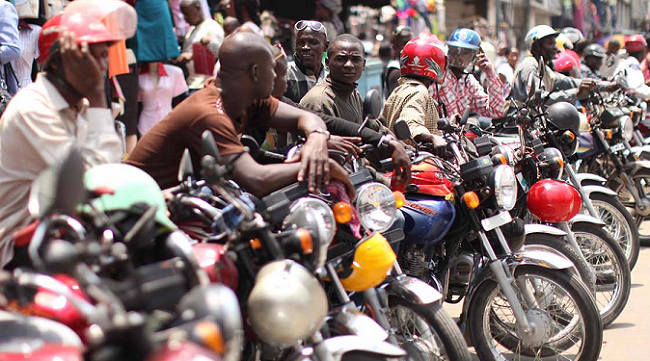A Transport and Road Safety Expert, Dr. Godfred Akyea-Darkwah, has called for a clear legislative provision to prohibit children under the age of 16 from riding on commercial motorcycles, popularly known as ‘okada’ as a passenger.
According to him, allowing minors on such vehicles poses serious safety risks.
Dr. Akyea-Darkwah, who is the Chief Executive Officer of Road Safety and Transportation Consultancies Ltd (RSTC), emphasized that children lack the emotional stability and physical readiness required to ride on motorcycles, especially in busy traffic.
“We should not allow any child who is less than 16 years to sit on motorbikes. Their level of braveness is low and so when there is a bigger vehicle coming or if the rider wants to pass in between two vehicles, as they have been doing, the child will experience a severe heartbeat and might even fall off the motorbike,” he said in an interview with Onua TV on April 17.

He stressed that such a restriction should be clearly stated in the ongoing Okada legislation before its final approval, highlighting the need to prioritize child safety in Ghana’s evolving transportation sector.
The government has introduced a comprehensive licensing regime aimed at regulating commercial motorcycle and tricycle operations. Under the proposed legislation, an okada rider must meet stringent requirements including being at least 25 years old, holding a valid national ID card, and acquiring a commercial rider’s license from the Driver and Vehicle Licensing Authority (DVLA). Riders must also pass a proficiency test encompassing oral, theoretical, and eye examinations.
Additional requirements include mandatory training, a unique yellow license plate, wearing of certified protective helmets with identification numbers, and membership in a recognized union. Riders are also required to provide helmets for passengers and strictly comply with traffic and speed regulations.
Dr. Akyea-Darkwah also urged the legislation to address the issue of overloading, which he warned increases the risk and severity of injuries in the event of an accident.
“When there is an accident and it is just the rider and one passenger, the damage and the number of persons affected become minimal. But when multiple passengers are on a single motorbike, the consequences can be far worse,” he cautioned.
He further supported the introduction of uniquely numbered helmets, saying they would aid in identifying riders involved in traffic violations or accidents.
Training for all commercial motor riders, he noted, must be made compulsory and strictly enforced to improve road safety across the country.










